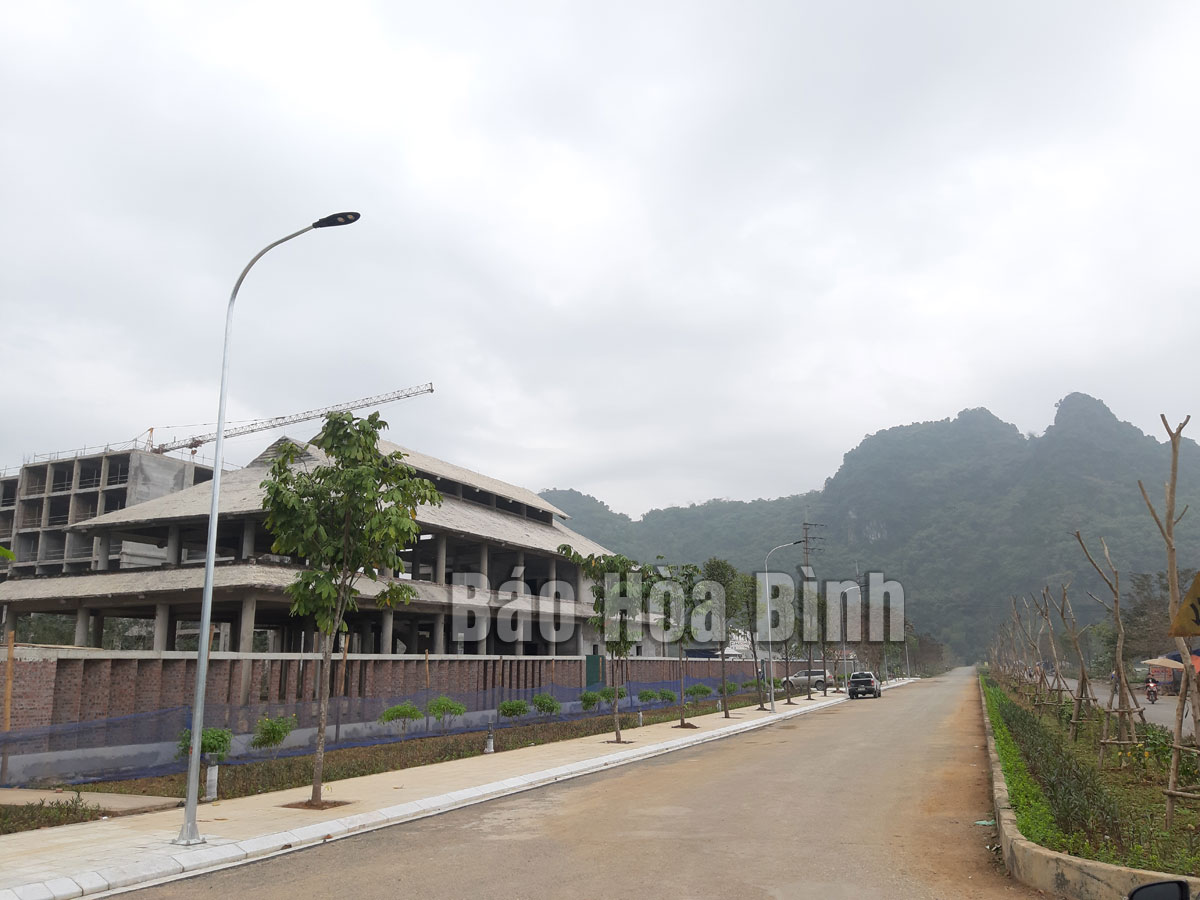
(HBO) - Owning a beautiful natural landscape, a rich cultural identity, and a source of mineral water considered "white gold", Kim Boi district has favourable conditions for the development of different types of tourism, services, and other fields The district is coordinating with relevant agencies to remove difficulties for investment projects in the area to fully exploit potential and advantages for development.
Bo town (Kim Boi District).
According to a report from Kim Boi District People's Committee, the district
has 57 non-State Budget investment projects winning in-principle
approval.Of which, 27 projects have been approved by the Provincial
People's Committee with a total registered capital of 2.7 trillion VND (118
million USD).
Of 28 projects approved by the district, seven are in operation with a total
registered capital of 53.9 billion VND and three involve in infrastructure
construction projects with 27.9 billion VND.
The reason for the slow progress of the projects is mainly due to the lack of
close coordination between the investors and the local authorities, leading to
many difficulties in site clearance.
Some obstacles relating to projects haven’t been solved which lengthen their
implementation and upset local residents.
The limited financial capacity of the investor was also an issue leading to the
fact that some projects had to be transferred or changed their investors,
extended the project implementation, and slowed the processing of documents and
procedures of state management agencies.
Bui Van Diep, Chairman of the district People's Committee said the district
authorities were strengthening coordination with relevant departments,
agencies, and units to promote administrative reform, remove difficulties in
site clearance, and provide maximum support for businesses and investors who
are capable of implementing projects in the fields of tourism, services and
agriculture in line with the set plan.
The district has submitted to the Provincial People's Committee a plan to
reclaim land for the cultivation of the fruit tree project in Vinh Tien commune
after its investment certificate had been revoked. It has also directed
relevant units to withdraw the investment certificate or policy if the projects
failed to meet financial requirements or affect the environment as reported by
locals./.
The Standing Board of the Hoa Binh provincial Party Committee has agreed in principle on a proposal by the Standing Board of the Party Committee of Hoa Binh city to gather feedback on the city’s 1:2000 zoning plan, which forms part of its broader urban development strategy.
Hoa Binh province has made notable progress in public administration reform and digital government development, with the satisfaction index among citizens and businesses reaching over 84%, according to recent government evaluations.
Thanks to great efforts by local authorities in recent times, the governance and public administration performance of Mai Chau district has been significantly improved.
In the afternoon of June 6, the Party Committee, the People's Council, the People's Committee and the Fatherland Front of Lac Son district solemnly held a meeting to celebrate the 139th anniversary of the district's founding (1886–2025) and the 79th anniversary of the establishment of the district's Party Committee (1946–2025). There was the attendance of Mr. Bui Van Thang, the Vice Chairman of the Provincial People's Council; Mr. Quach Tat Liem, the Vice Chairman of the Provincial People's Committee; Ms. Dang Bich Ngoc, the Deputy Head of the National Assembly Delegation of the province; as well as the former leaders of the province and district through various periods, who are the natives of the district.
Implementing the Politburo’s Resolution No. 57-NQ/TW on breakthroughs in science – technology, innovation, and digital transformation is a golden opportunity for the northern mountainous province of Hoa Binh to renew growth model, improve competitive edge and shorten digital gap.
Resolution 57-NQ/TW, issued by the Politburo on December 22, 2024, identifies sci-tech, innovation, and digital transformation as strategic breakthroughs to build a developed and prosperous nation. In Hoa Binh province, this spirit is not just a slogan, it’s being put into action through concrete initiatives that form a "new development triangle”: digital citizenship, digital economy, and digital administration.



